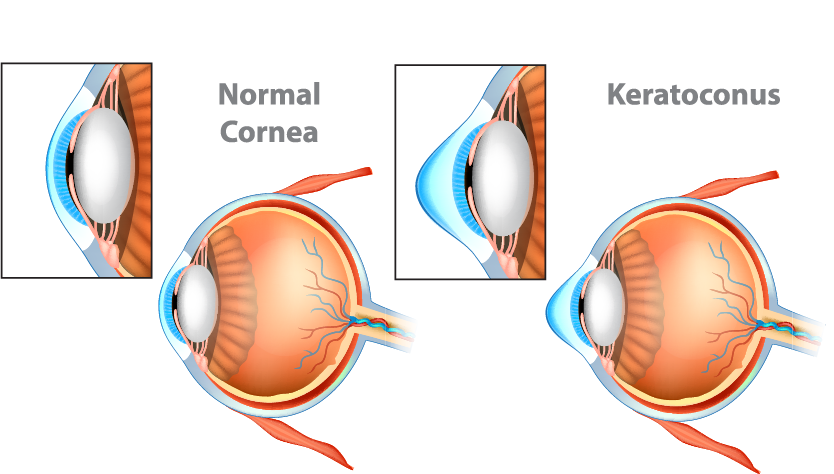WHAT IS KERATOCONUS?
Keratoconus is when the normally round cornea thins and becomes cone shaped.
As the cornea changes in shape, it changes the way light rays are focused on the retina. As a result, vision becomes blurry and distorted.
Keratoconus often begins in the late teen years and symptoms can progress slowly for 10 to 20 years.
WHAT CAUSES KERATOCONUS?
In patients with keratoconus, collagen fibers in the cornea become weakened and cannot hold the shape of the cornea.
The exact cause of this is unknown but it is thought that a decrease in protective antioxidants and an increase in free radicals is a cause. In some cases, keratoconus appears to be genetic. Around 10% of patients have an affected parent.
Keratoconus is also associated with overexposure to ultraviolet light, chronic eye irritation or excessive rubbing of the eyes. It is thought that excessive rubbing can damage corneal tissue, making symptoms worse.
KERATOCONUS SYMPTOMS
Schedule an eye exam
TREATING KERATOCONUS
Treatment of keratoconus depends upon your symptoms. In early stages, eyeglasses or special contact lenses can be used to correct vision.
As symptoms progress, other treatments may be necessary. These include:
Intacs - Intacs are FDA approved small plastic arcs that are surgically placed in your cornea. Intacs bring the cornea closer to its original dome shape by flattening the curve.
Collagen Cross - Linking. Cross linking is a procedure where your ophthalmologist uses a special UV light and eye drops to strengthen the weakened collagen fibers of the cornea. This helps flatten your cornea and keeps keratoconus from getting worse.
Corneal Transplant - In severe cases, all or part of the cornea can be replaced.




